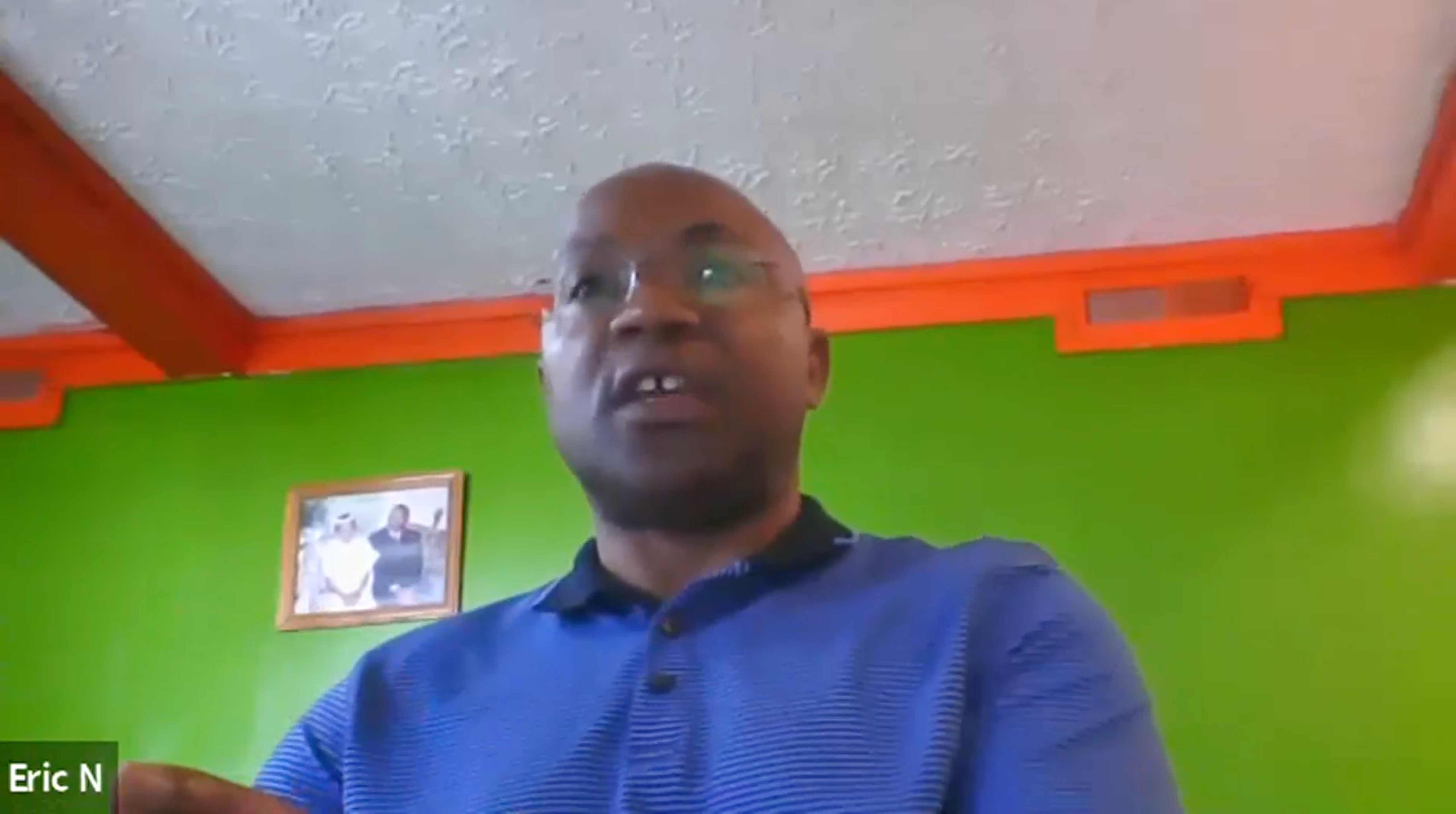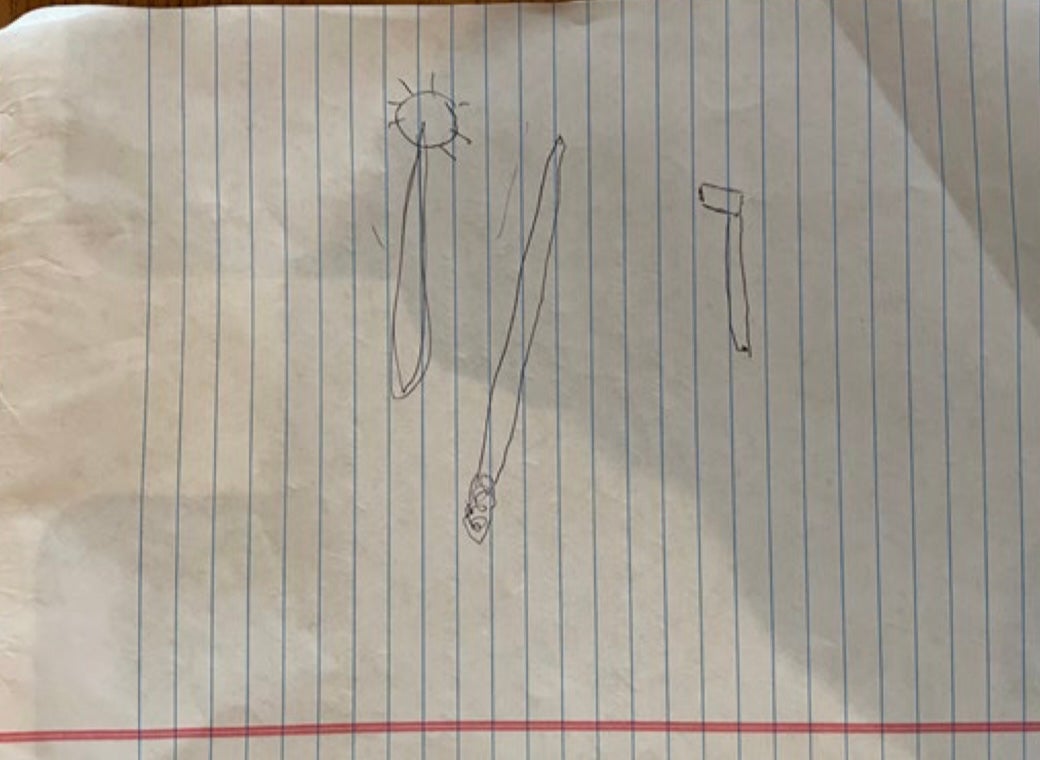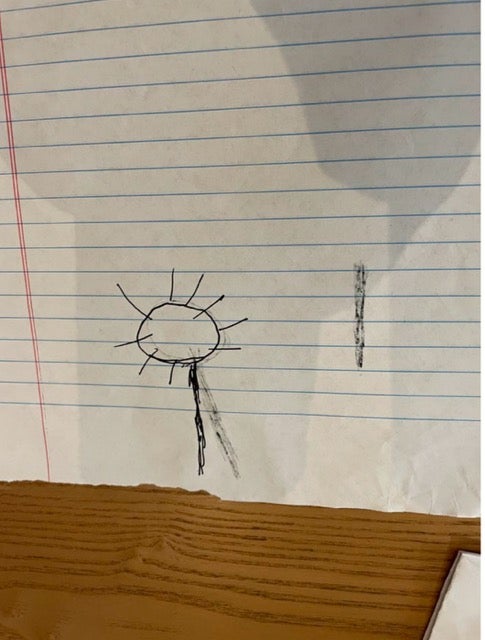A double life exposed: Ohio engineer and dad was genocide perpetrator, prosecutors say
Eric Nshimiye, a 52-year-old originally from Rwanda, has carved a decades-long career as an engineer and neighborly father-of-four in Ohio. Now federal authorities charge that he’s been living a double life – hiding a murderous past as a perpetrator during Rwanda’s genocide. Sheila Flynn reports

Akron was in the middle of an unseasonable warm spell earlier this month when Homeland Security investigator Matthew Langille arrived at the corporate headquarters of Goodyear Tire & Rubber to meet with the company’s principal engineer.
Eric Nshimiye had worked at Goodyear in Ohio for 23 years. He joined the same year he graduated from University of Dayton with a degree in electrical engineering; just five years earlier he’d come to the US as a refugee from war-torn Rwanda.
Langille began posing a series of questions on March 11 to Nshimiye, now a suburban father of four known for mowing neighbours’ lawns and general congeniality. The federal agent asked how Nshimiye had come to the United States and what his political affiliation had been prior to the Rwandan genocide, during which the ethnic minority Tutsis were systematically hunted down and killed by Hutu extremists.
Langille asked, ultimately, if Nshimiye had been involved in raping or killing anyone during the genocide, which left 800,000 dead.
Nshimiye “first responded by shaking his head, laughing nervously, and asking for a drink of water,” Langille later wrote in court documents filed ten days later. “When I persisted by asking again, he falsely denied any involvement in raping or killing anyone during the genocide.”

Investigators, however, had already compiled an avalanche of evidence indicating otherwise – and federal prosecutors charge that Nshimiye is instead a genocide perpetrator who’s been living a double life for decades. They believe he actively tracked down and pointed out Tutsis, identifying them for death, in addition to brutally murdering victims himself. In one horrifying instance, they allege he murdered a 14-year-old child using a machete and spiked club directly after killing the boy’s mother.
Now 52-year-old Nshimiye, also known as Eric Tabaro Nshimiyimana, has been charged in a criminal complaint with falsifying, concealing and covering up a material fact by trick, scheme or device; obstruction of justice; and perjury. He was arrested Thursday in Ohio and will appear in federal court in Boston at a later date.
In addition to his alleged atrocities in Rwanda, charges also pertain to Nshimiye’s false testimony in the 2019 trial of a former classmate and now-convicted Rwandan genocide perpetrator.
Neighbours in Lake Township, the neatly-manicured suburb where Nshimiye has lived with his wife and children for years in a three-bed, 2.5-bath house, were in shock this week. They told the Canton Repository the family was known for serving African food, with neighbourhood children playing soccer in their yard.
“That is not the person I know,” one woman who’s been friends with Nshimiye for 12 years told the outlet . “The person we know is a family man. He’s not a violent person. Our children (who are friends of his children) have spent the night at his house. That’s not the person I know.”
Nshimiye, according to documents, has gone to great lengths for decades to disguise a past that reads in court documents like a horror movie.
An ethnic Hutu, which constituted an 85 per cent majority in Rwanda in the early 1990s, Nshimiye enrolled as a medical student around 1991. He studied at the University of Rwanda in Butare, the intellectual and multi-cultural epicentre of the country at the time and also home of the university-affiliated hospital. He was still a student at the time the genocide began in 1994, according to documents.

During that time, Nshimiye was an active member of the Movement Revolutionaire National pour le Developpement, the ruling party of Hutus inciting the genocide, as well as its youth militia known as the Interahamwe. The court documents allege he was participating in rallies, wearing insignia clothing and even undergoing weapons training in a forest adjacent to the university campus. The student leader of the MRND in Butare, Jean Leonard Teganya, was a regular associate, and Nshimiye testified for him decades later in Boston, documents state.
But Nshimiye’s political involvement deepened and darkened far beyond rallies and insignias. According to Langille’s sworn testimony in documents, Nshimiye actively hunted out and marked for execution Tutsis, many of whom had taken refuge at the university hospital. He picked out Tutsis from roadblocks, often “armed with a wooden club spiked with nails and a machete” as well as “a hatchet and grenades,” according to documents.
The court documents included drawings by two people of the torture instrument spike that Nshimiye reportedly used.
“Both persons who participated in the genocide as perpetrators, and survivors of the genocide, recently identified Nshimiye as among the most vicious University students who were members of the Interahamwe during the genocide,” Langille writes. “For instance, one fellow perpetrator … recounted Nshimiye’s use of a machete and spiked club to murder 14 year old Tutsi boy a short while after Nshimiye and others had killed his mother.”
The same witness “recounted another instance in which Nshimiye was with a group of Interahamwe who rounded up 25-30 Tutsis who had been hiding in the forest near the University,” the documents continue. “The group, including Nshimiye and others, killed all of the captured Tutsis and then burned their bodies in the forest.”
In another horrifying incident, a second alleged perpetrator told investigators that the Ohio engineer “instructed other members of the Interahamwe to rape and then kill six young women who were University students.”
After giving the instructions, Nshimiye reportedly left the group and returned later to find the women still alive, the documents state – so he “selected one young woman to kill and assigned other Interahamwe to kill the remaining women. Nshimiye killed the young woman by striking her in the head with a nail-studded club, and then hacking her to death.”

The same witness also detailed how Nshimye captured a Tutsi tailor who made coats for doctors at the hospital, took the tailor away with others, then returned to brag he’d killed the man while carrying a “blood-soaked nail-spiked club.”
Nshimiye fled from Rwanda in 1994, somehow making his way to Kenya but giving varying accounts over the years as to his route. He was in Nairobi by May 1995, however, when he applied to become a refugee to the US, claiming in his application that his old alleged militia, Interahamwe, killed his father and had threatened his life. At the time he also listed a false place of birth, false date of leaving Rwanda and denied having been a member of any “political, professional or social organization” at any time prior to his application – among other alleged falsehoods.
Nshimiye continued to lie during an interview with a US immigration official in Nairobi, claiming he’d never had “any involvement in the killing or injury to other persons since April 1, 1994,” and that he did not, “in any way encourage others to participate in such killing or injury,” according to the documents.
As part of the visa process to the US, authorities regularly question if an applicant has been involved in genocide, torture, terror organizations, or other heinous crimes.
The Rwandan was granted admission to the US in December 1995 along with work authorization, entering the country through New York and moving to Ohio. He became a permanent resident in 1998 – continuing to lie, according to the documents – and a naturalised citizen in 2003, all the while leaving out his alleged murderous activities back home.
In Ohio, meanwhile, he was building a life. He graduated from University of Dayton, working for two years at Dayton Power & Light before joining Goodyear as an electrical engineer and working his way up to Principal, according to LinkedIn. He and his wife bought their Lake Township home in 2003 and raised two sons and two daughters, the Canton Repository reported; the children attended North Canton City Schools and Nshimiye invited neighbours for graduation parties, they told the outlet.
A wheelchair-bound next-door neighbour told the paper how friendly and generous Nshimiye had been over the years.
“He bent over backwards to help,” he said. “I wish all neighbours were like him … I trust him before I trust a lot of other people on the street.”

His instincts may have been hugely misguided, however, because duplicity became a hallmark of the Rwandan’s life – and he doubled down by protecting another genocide perpetrator who’d fled to the US, documents charge.
His old university friend and roommate, Teganya, had relocated to Boston – and found himself in legal trouble in 2017, charged with fraud and misuse of visas, permits and other documents. The indictment alleged that, while seeking asylum in the US, Teganya – like Nshimiye, had failed to disclose that he was a member of MRND along with the associated genocidal activities.
Nshimiye was called as a witness in Teganya’s 2019 trial and “testified falsely” about his friend’s “association with the MRND, seeking to falsely exculpate Teganya,” documents state. “Nshimiye also testified falsely about his own membership in the MRND and the Interahamwe, and his participation in the Rwandan genocide, among other things.
“In so doing, Nshimiye aided and abetted Teganya’s endeavor to obstruct justice, as Teganya was fully aware that Nshimiye would lie to exculpate him. Moreover, Nshimiye engaged in obstruction of justice himself, by assisting Teganya, and seeking to prevent or derail a federal law enforcement investigation of his own activities during the genocide and his fraudulent scheme to enter the United States as a refugee and ultimately become a United States citizen,” read the court documents.
Teganya was convicted in 2019 of two counts of immigration fraud and three counts of perjury, sentenced to 97 months in prison; he will face removal proceedings upon the end of his sentence.
Now his former classmate is facing a similar fate.
“Nshimiye is accused of lying to conceal his participation in one of the greatest human tragedies of all time,” HSI New England Special Agent in Charge Michael J. Krol said on Thursday. “The charging documents make specific allegations about the murder and rape of ethnic Tutsis committed during his time as a medical student in Rwanda. The government alleges his testimony in the defense of a convicted genocidaire was a calculated attempt to conceal the horrific crimes committed during the genocide, further distancing himself from his participation in these horrific events, and avoiding consequences of his actions.”
The charge of perjury and charge of falsifying, concealing and covering up a material fact by trick, scheme or device can each bring a sentence of up to five years in prison, three years of supervised release and a fine of up to $250,000. The charge of obstruction of justice can bring a sentence of up to 10 years in prison, three of supervised release and a fine of up to $250,000.
In Ohio, meanwhile, those who’ve known Nshimiye for nearly 30 years are struggling to reconcile the allegations with the man who’s mentored local students, helped neighbours and been a steadfast presence at a famed employer for decades.
“Goodyear is deeply troubled to learn of the recent charges brought against one of our associates and is fully cooperating with authorities,” the company told The Independent on Friday in a statement.
A public defender representing Nshimiye did not immediately return a request for comment on Friday from The Independent.
Join our commenting forum
Join thought-provoking conversations, follow other Independent readers and see their replies
Comments
Bookmark popover
Removed from bookmarks